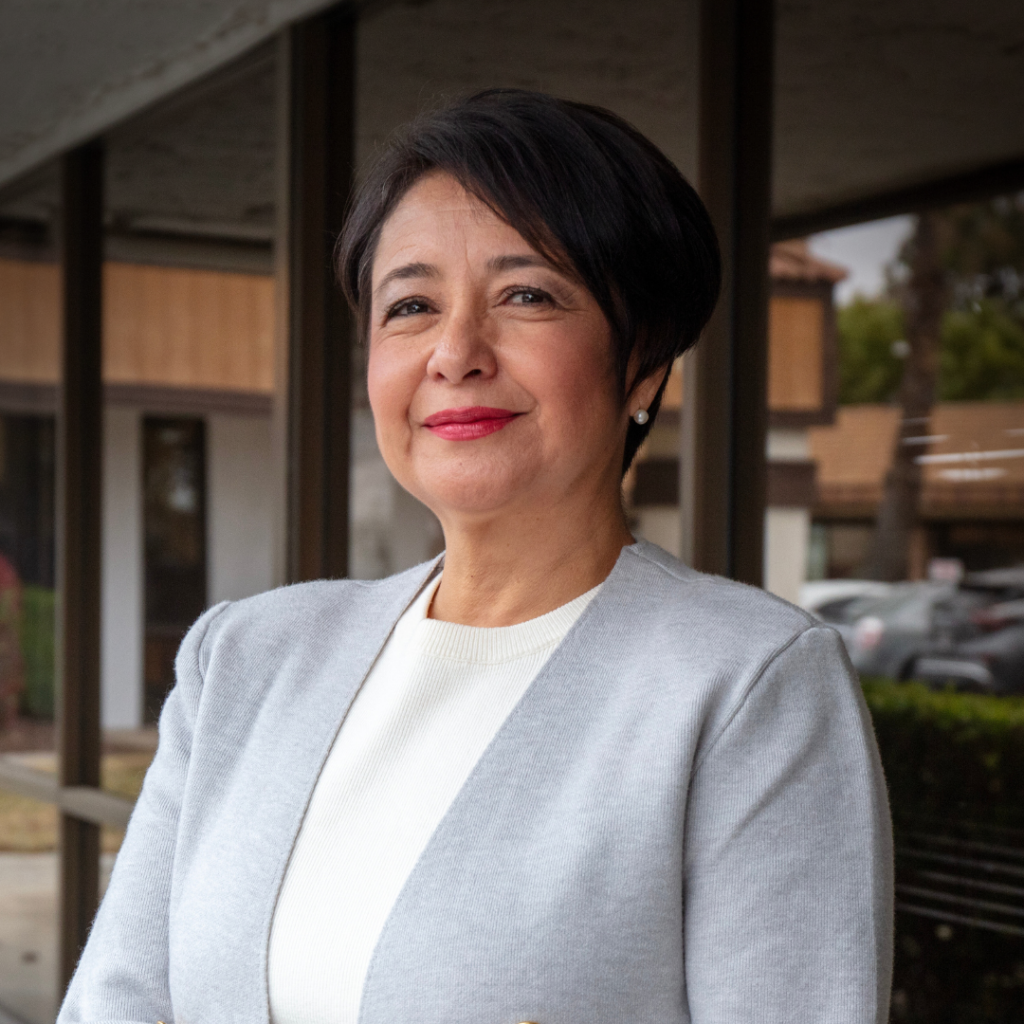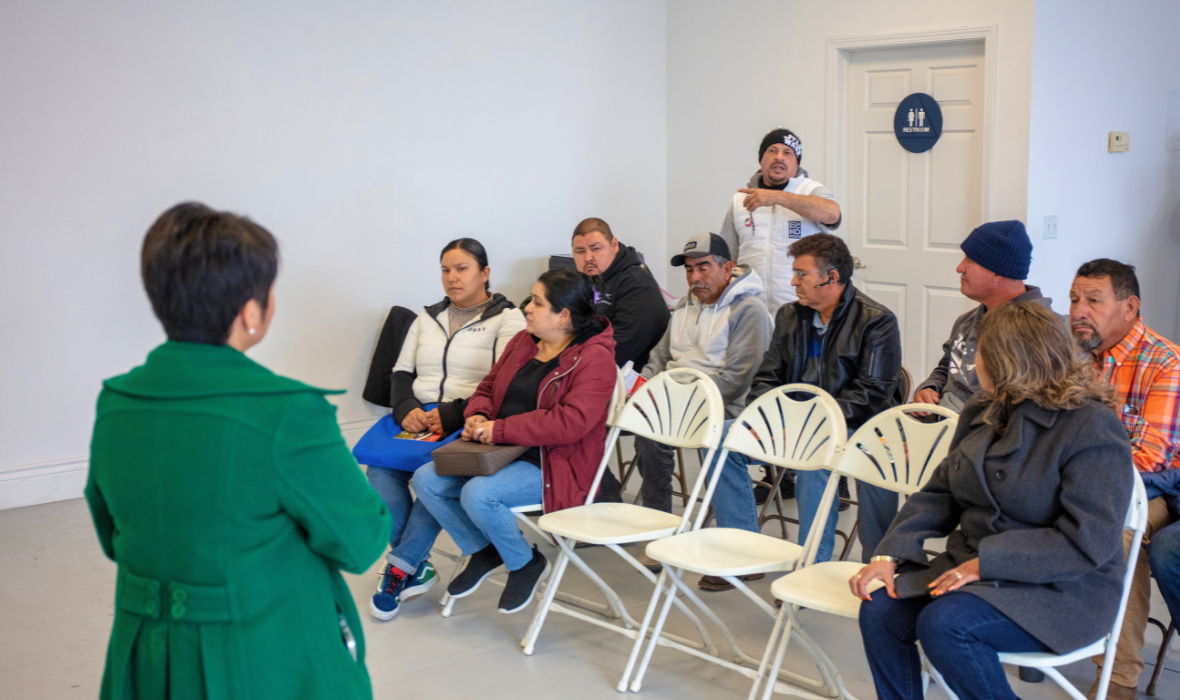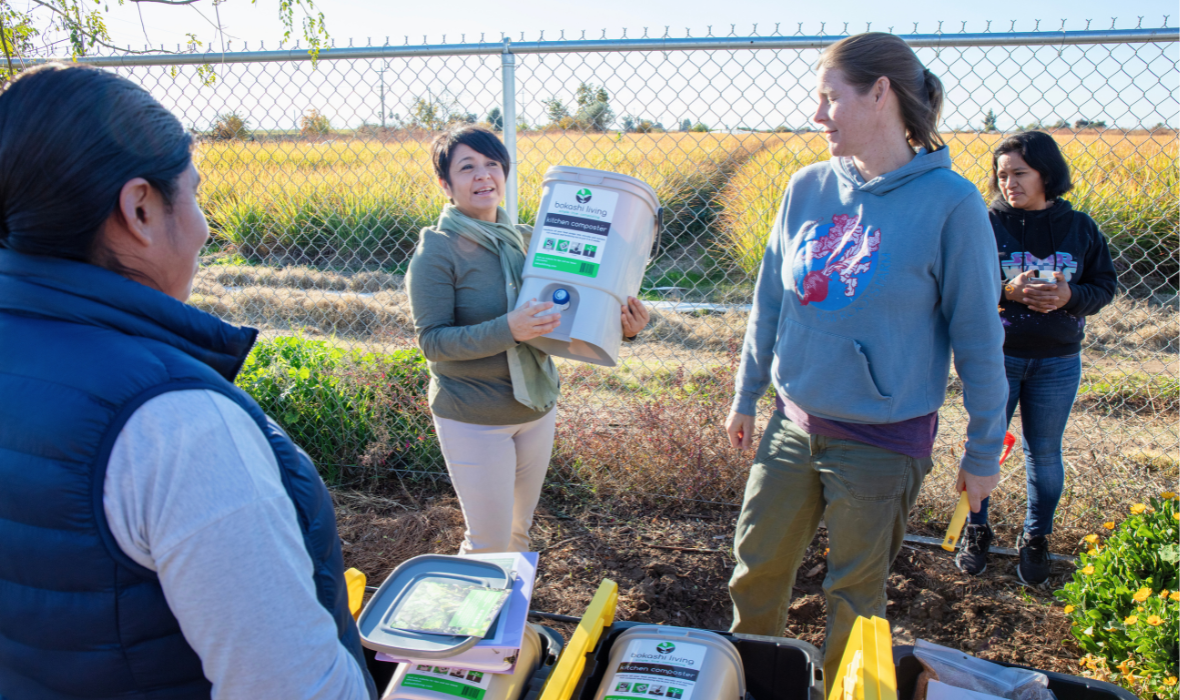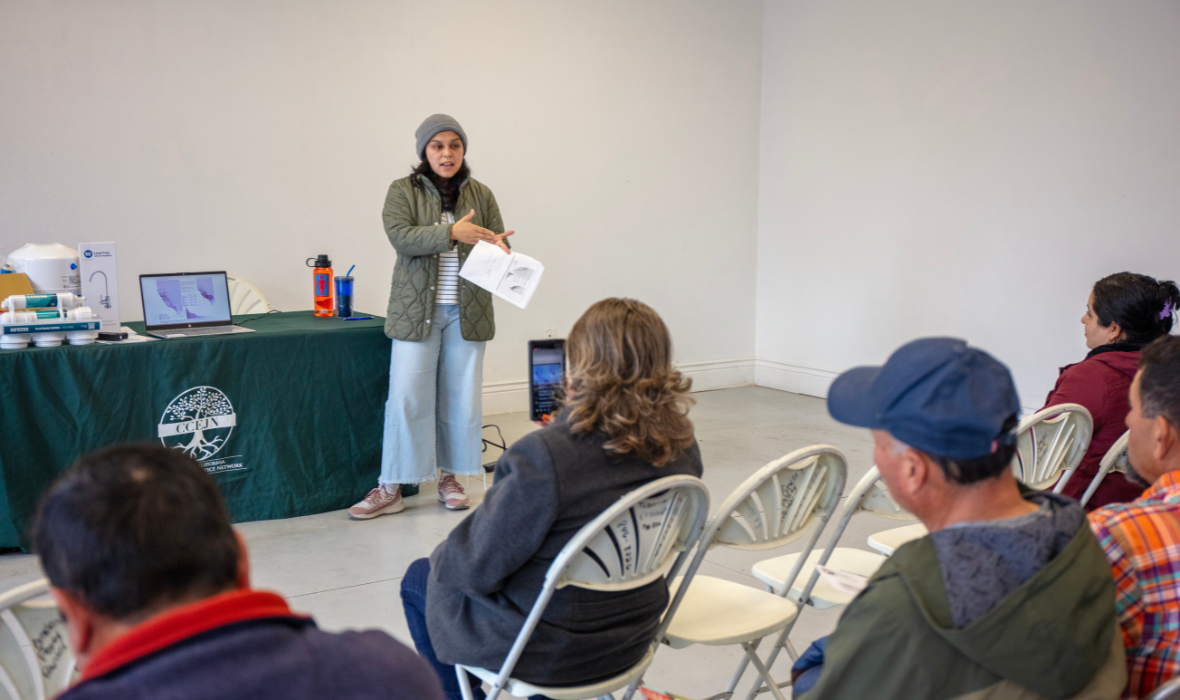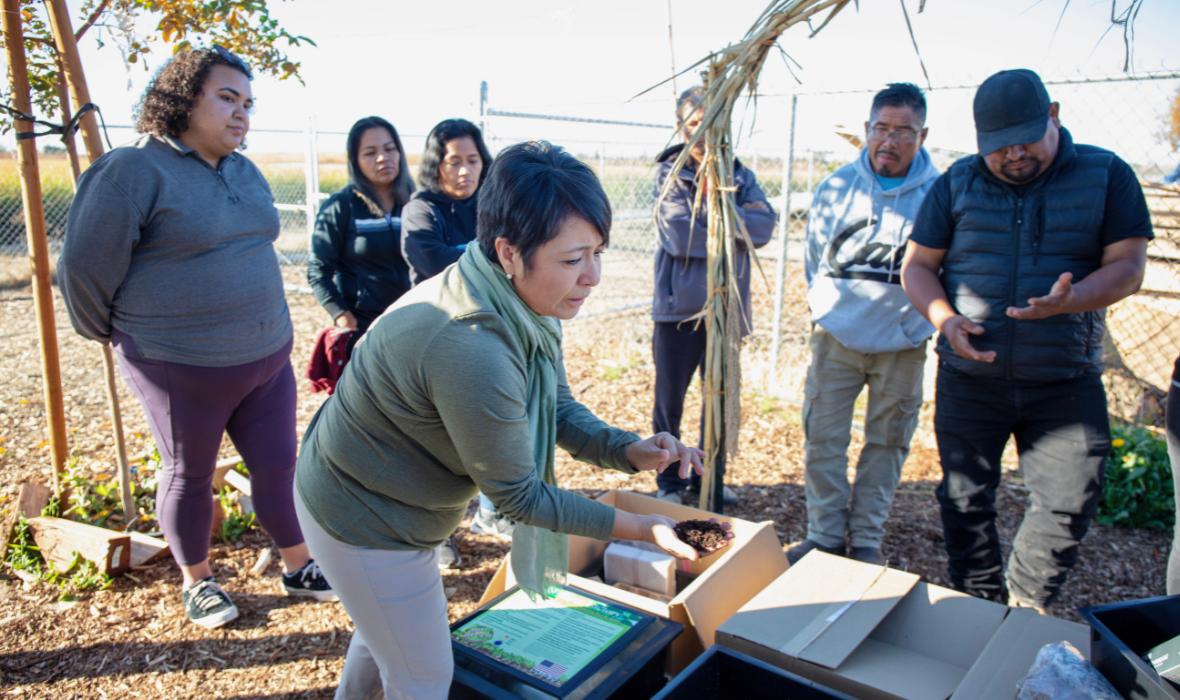Fighting for justice and resiliency for those most impacted by pollution and extreme heat
Overview
While growing up in a small town in Mexico, Nayamin Martinez Cossio’s father instilled in her the value of education. She immigrated to Fresno in 2000 and began advocating for civic participation and health education projects for the region’s immigrant communities, who are disproportionately impacted by air and water pollution, pesticide exposure, and extreme heat. Wanting to focus her efforts on systemic change, she took the helm as the Executive Director of the Central California Environmental Justice Network (CCEJN) in 2016. Under her leadership, CCEJN equips residents with tools and knowledge to advocate for systemic change while addressing immediate needs with initiatives like community resilience kits, clean drinking water access, and environmental monitoring programs. In collaboration with key partners, her work has driven significant policy wins, including California’s first statewide pesticide notification system and bans on oil drilling near populated areas. By combining advocacy, grassroots organizing, and innovative programs, Martinez empowers communities to reclaim their rights and build healthier, more equitable futures.
“We don’t wait for policy changes to act—our communities can’t afford to wait. We take immediate steps to protect their health and safety while fighting for the systemic reforms they deserve.”
Issue Areas
Primary Regions Served
Challenge
- California’s Central Valley is one of the most polluted regions in the United States, with intensive agricultural practices, industrial emissions, and heavy vehicle traffic contributing to poor air quality and widespread environmental hazards.[1]
- Rural, low-income, and farmworker communities in the Central Valley face severe challenges from air and water pollution, pesticide exposure, and extreme heat, exacerbating health disparities and threatening economic stability.
- The Central Valley’s political and economic landscape is shaped by agricultural interests, creating significant barriers for residents seeking accountability and justice. Language barriers further hinder access to essential services and understanding of complex regulatory systems.
Innovation
- CCEJN leads the San Joaquin Valley Cumulative Health Impact Project (SJV CHIP), which combines data on environmental hazards and social vulnerability to address inequities in the Central Valley. By highlighting disproportionate pollution exposure in low-income communities of color, it drives evidence-based advocacy for policy and systemic change.
- Through initiatives like the Identifying Violations Affecting Neighborhoods (IVAN) program, CCEJN empowers residents in Fresno and Kern Counties to report environmental violations directly to regulatory agencies. With CCEJN’s support, residents can effectively advocate for their rights and hold institutions accountable.
- To address immediate climate risks like extreme heat and unsafe air quality, CCEJN distributes resilience kits, including cooling tools and air purifiers, while also piloting statewide initiatives like heat warning systems and disaster pay for farmworkers.
- CCEJN’s La Milpa de Fresno (MILPA) is a 1.5-acre community farm promoting food security, sustainable agriculture, and economic empowerment in California’s Central Valley. MILPA not only provides fresh produce to the community but also supports small-scale farming businesses and offers training for farmers.
Impact
- In 2024, Martinez helped organize a hearing on farmworker safety with the Assembly Standing Committee on Labor and Employment, providing a platform for farmworkers to share their concerns. This led to the Committee commissioning an audit of Cal OSHA. [2]
- Martinez played a pivotal role in the implementation of California’s landmark air quality and environmental justice policy, Assembly Bill 617 (2017), which funded a statewide pesticide notification system, Spray Days. [3]
- CCEJN also played a key role in the passage of Senate Bill 1137 in 2022, a landmark policy banning new oil and gas facilities within 3,200 feet of homes, schools, clinics, and other sensitive areas. [4]
- Martinez has been instrumental in addressing the lack of access to clean water in the Central Valley, a region with approximately 370 failing water systems.[5] CCEJN’s advocacy helped secure funding from the California State Water Resources Control Board to construct waterline extensions, connecting the community to a larger water district. [6]
Opportunity
- As California transitions to a green economy, CCEJN is advocating for farmworkers’ inclusion by ensuring fair wages, safe conditions, and access to training on sustainable agriculture. Their efforts emphasize farmworkers’ vital role as land stewards in shaping a just and equitable future.
- CCEJN plans to expand MILPA by offering ongoing farmer training, launching a community-supported agriculture business, and establishing a community land trust to provide affordable land and housing for farmworkers.
- CCEJN is working to ensure fair compensation or paid leave for farmworkers when air quality becomes hazardous (≥150 AQI), ensuring their health and well-being are protected during dangerous conditions.
The written profile and video reflect the work of the leader(s) the year they received a Leadership Award. Please contact the leader(s) for current information.
